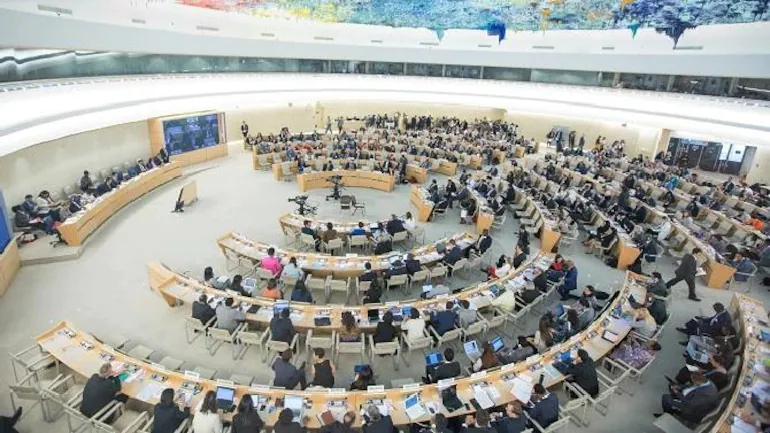UNHR Orders Probe into Violations Surrounding Latest Gaza Violence
By Our Monitoring Team
GENEVA: The UN Human Rights (UNHR) Council decided on Thursday to create an open-ended international investigation into violations surrounding the latest Gaza violence, and into “systematic” abuses in the Palestinian territories and inside Israel.
The resolution, which passed with 24 of the council’s 47 members in favour, would spur an unprecedented level of scrutiny on abuses and their “root causes” in the decades-long Middle East conflict.
The text, which was presented by Pakistan on behalf of the Organisation of Islamic Cooperation, was debated during a special one-day council session focused on the surge in deadly violence between Israelis and Palestinians this month.
Opening the session, UN rights chief Michelle Bachelet voiced particular concern about the “high level of civilian fatalities and injuries” from the attacks on Gaza, and warned the Israeli attacks on the enclave “may constitute war crimes”. She also said Hamas’s “indiscriminate” firing of rockets at Israel was “a clear violation of international humanitarian law”.
Before a truce took hold last Friday, Israeli air strikes and artillery fire on Gaza killed 254 Palestinians, including 66 children, and wounded more than 1,900 people in 11 days of conflict, the health ministry in Gaza says.
A barrage of thousands of rockets and other fire from Gaza claimed 12 lives in Israel, including one child and an Arab-Israeli teenager, medics say. Some 357 people in Israel were wounded.
Thursday’s resolution ordered the launching of an investigation into violations surrounding the latest violence, but also into “systematic” abuses spurring a repetitive cycle of violence over the decades.
The council agreed to establish “an ongoing independent, international commission of inquiry… in the Occupied Palestinian Territory, including East Jerusalem and in Israel”.
The investigators, the text said, should probe “underlying root causes of recurrent tensions and instability, including systematic discrimination and repression based on group identity”.
The investigation should focus on establishing facts and gather evidence for legal proceedings, and should aim to identify perpetrators to ensure they are held accountable, it said.
It also urges countries to “refrain from transferring arms when they assess… that there is a clear risk that such arms might be used in the commission or facilitation of serious violations or abuses”.
Before the vote Meirav Eilon Shahar, Israel’s ambassador to the UN in Geneva, slammed the session and the text, insisting they were yet another example of the council’s bias against Israel. The resolution, she insisted, “has nothing to do with reality, has nothing to do with human rights”.
As expected, she urged countries not to back the resolution, which she said would “embolden and reward Hamas….”. Israel, she insisted, “took all measures to protect civilians”. Bachelet said her office had “not seen evidence” that the buildings targeted in Gaza, including medical facilities and media offices, were “hosting armed groups or being used for military purposes”.
Palestinian Foreign Minister Riyad al-Maliki, meanwhile, accused Israel of instituting “an apartheid system”. “The right to self defence and the right to resist occupation is a right we have as the Palestinian people,” he said.

